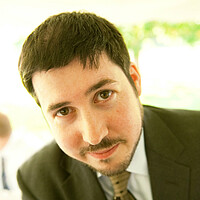Nobel Peace Prize win highlights work of chemical arms group OPCW
Loading...
The Hague-based Organization for the Prohibition of Chemical Weapons (OPCW), already in the news for its fast-moving effort to rid Syria of chemical arms, received a boost today in the form of the 2013 Nobel Peace Prize.
The Washington Post writes that the OPCW win was a surprise, but not without precedent:
The removal of chemical weapons from Syria has been viewed as an important step in bringing an end to a two-and-a-half year war that has killed an estimated 100,000 people.
“Disarmament figures prominently in Alfred Nobel’s will,” the committee said, recalling the extensive use of chemical weapons in World War I and their use by states and terrorists alike.
The OPCW was up against an long list of 259 contenders; a Washington Post list assessing the race this week mentioned Pope Francis, dissident and human rights activist Hu Jia of China, and Pakistani schoolgirl Malala Yousafzai, but not OPCW or any of the other 49 organizations nominated. The OPCW's work in Syria has been notable not just for the speed and international support that has moved it forward, but for its urgency, brought on by the civil war and a brutal chemical weapons attack this August near Damascus.
The Nobel for the OPCW is part of a tradition of awarding peace prizes to organizations that seek to limit the spread of unconventional weapons. In 2005 the then head of the International Atomic Energy Agency, Mohammad ElBaradei, was awarded the prize along with his organization. The Nobel in 1985 went to International Physicians for the Prevention of Nuclear War and the 1995 award went to Joseph Rotblat, a physicist and early nuclear bomb developer, and the Pugwash Conferences for "their efforts to diminish the part played by nuclear arms in international politics and, in the longer run, to eliminate such arms."
A Telegraph profile of the OPCW describes the group's work in detail and highlights the role of the Swedish scientist who is at the head of the group's Syria team:
The Hague-based body employs technical experts and highly-skilled specialists to inspect and destroy the arsenals of its 189 members. It is the embodiment of a groundbreaking international law adopted in 1925 to prohibit the use of deadly weapons of mass destruction.
The decision to award the Nobel prize to the body is as much as anything a tribute to the role of Swedish scientist Ake Sellstrom.
Mr Sellstrom was the chief inspector of Unscom, the special commission set up after the Gulf War in the early 1990s and this year took a team to Syria to carry out inspections of suspected chemical weapons use in that country's civil war.
The Nobel award comes in mid-stream of the group's efforts to remove weapons from Syria. This week, the OPCW's 27-person team visited three sites in Syria (out of 20 planned visits), amid scattered fighting between the regime and rebel groups in that country's civil war.
The OPCW's presence in Syria has been a topic of rare international unity, bringing together Syrians, Europeans, Americans, and Russians, the last of whom have long been champions of Syrian President Bashar al-Assad. The Guardian quoted US Secretary of State John Kerry this week at a joint press conference with Russian Foreign Minister Sergei Lavrov:
[Kerry] said the Assad regime deserved credit for its speedy compliance thus far with the UN security council resolution calling for the elimination of the weapons. But Kerry stressed Assad was not yet off the hook.
"Let me be crystal clear," Kerry said, "we're very pleased with the pace of what has happened with respect to chemical weapons."
He noted that experts had started the process of destroying the stockpiles on Sunday, just over a week after the United Nations security council and the international chemical weapons watchdog acted.
The Monitor this month laid out parallels between the international pressure on Syria and the effort to destroy Iraq's chemical weapons stockpile in the 1990s:
Most of Iraq's chemical weapons were transferred to two vast bunkers, where they remain under lock and key while experts ponder how to destroy them. "Where it was feasible, we transported the old agents to that facility. If it was too dangerous or they were leaking, we tended to blow them up in place [in fire pits dug into the sand].... We would put cans of heating oil around them and detonate it," [former acting UN Special Commission on Iraq chairman Charles] Duelfer says.
The OPCW identifies the use of phosphene and chlorine gas in World War I as the beginning of the use of chemical weapons in the modern era:
These chemicals were manufactured in large quantities by the turn of the century and were deployed as weapons during the protracted period of trench warfare. The first large-scale attack with chlorine gas occurred 22 April 1915 at leper in Belgium. The use of several different types of chemical weapons, including mustard gas (yperite), resulted in 90,000 deaths and over one million casualties during the war. Those injured in chemical warfare suffered from the effects for the rest of their lives; thus the events at Ieper during World War I scarred a generation.
But as long as humans have fought one another, poisons and chemical weapons have been part of the equation, from envenomed weapons to the incapacitating (and therefore deadly) rhododendron honey that laid low the warriors of Pompey the Great. (These and other stories are vividly told in the book Greek Fire, Poison Arrows, and Scorpion Bombs: Biological & Chemical Warfare in the Ancient World.)








